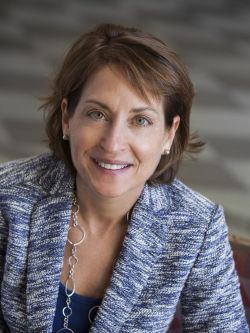Event Date/Time
Location
Room 222
Series/Event Type
Intervertebral disc disorders are among the greatest contributors to pain and disability annually, such that low back pain and neck pain are ranked #1 and #4 for disease impact globally. Microenvironmental conditions for resident cells of the intervertebral disc contribute to an early decrease in cellularity, and associated tissue destruction, loss of hydration and eventual disc collapse or herniation. The most vulnerable of disc cells are the nucleus pulposus cells, derived from embryonic notochord, that are distinct from the neighboring mesenchymal cells that form the anulus fibrosus. Our laboratory has studied the micromechanical environment of these nucleus pulposus cells and factors that regulate nucleus pulposus cell phenotype and biosynthesis. We have demonstrated an ability to promote biosynthesis and survival by presenting key peptides and proteins to pathological nucleus pulposus cells, that replicate some features of notochordal development. We have also advanced knowledge of environmental cues that promote a healthy, biosynthetically active nucleus pulposus cell, and identified biomaterial strategies to restore a healthy phenotype for pathological, human primary disc cells. This talk will review an understanding of the micromechanical environment and mechanobiology of the disc cells, and our work with engineering substrates and protein-conjugated biomaterials to promote matrix regeneration, cell differentiation and consequently cell “re-birth” in the intervertebral disc.
Speaker Bio
Prof. Setton’s research focuses on understanding mechanisms that regulate degeneration and regeneration of soft tissues of the musculoskeletal system. Recent work focuses on development of in situ forming hydrogels for drug delivery and tissue regeneration in the knee joints and spine. She has funded her lab through grants from the NIH, NSF, Whitaker Foundation, Coulter Foundation, OREF, AO Foundation, and North Carolina Biotechnology Center and research agreements with many corporations.
